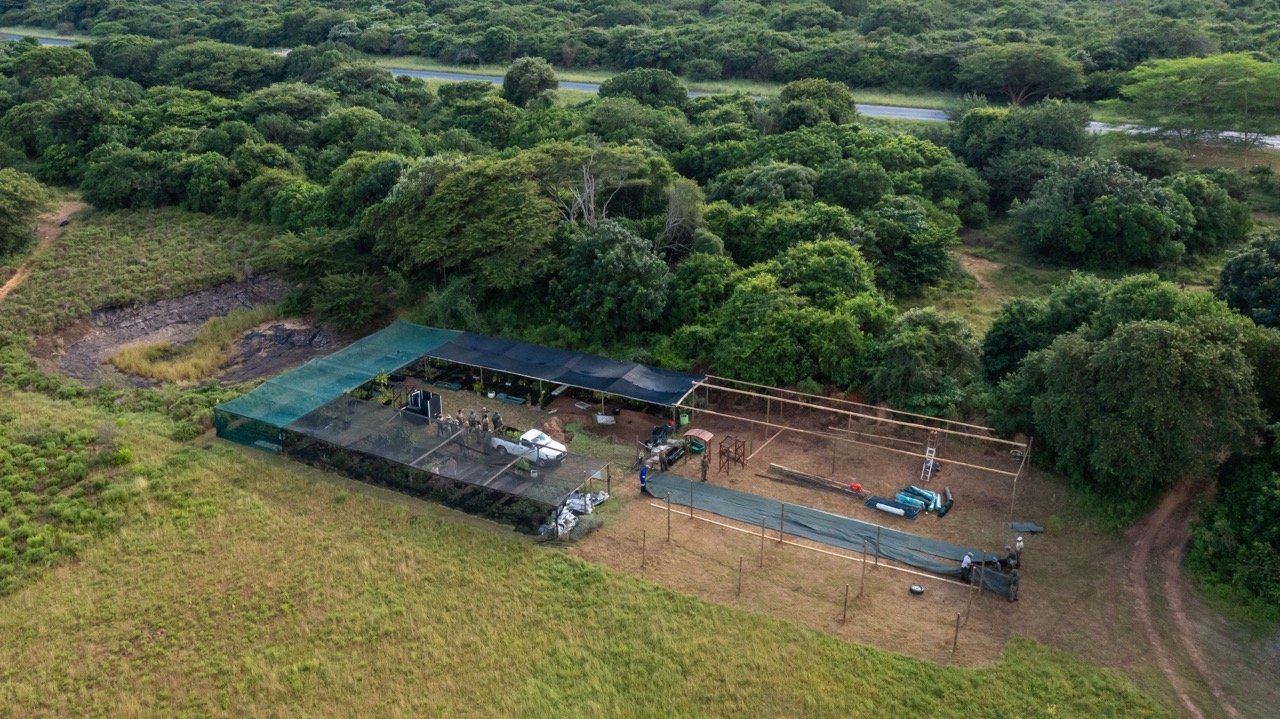NEW SAND FOREST RESTORATION GRANT
Wild Tomorrow is delighted to announce that we have been awarded a Field Conservation Grant from Taronga Conservation Society Australia. This two-year grant supports our Green Mambas’ work restoring the critically endangered Southern African dry sand forest on our nature reserve and hiring a new sand forest nursery manager.
A Green Mamba waters the sand forest plant seedlings.
Over the next two years, we are partnering with the Taronga Conservation Society Australia, who have awarded us a Field Conservation Grant to support our work restoring the critically endangered Southern African dry sand forest on our Greater Ukuwela Nature Reserve in KwaZulu-Natal, South Africa.
Our new nursery manager, Vumani Jobe, will help oversee the growth of sand forest plants and trees to replenish the degraded habitat.
The Taronga Foundation’s grants are extremely competitive. Our project was one of just 11 selected from 107 applications from 39 different countries! Projects were shortlisted by a panel of 35 reviewers from across the Taronga Zoo and scored on conservation efficiency (CE), conservation outcomes, and project costs, with only the highest-scoring projects selected for funding.
The grant will fund an expansion of our sand forest nursery to double its size and fund the full-time salary of our new community nursery manager, Vumani Jobe. Vumani will work under the direction of our reserve manager, Kevin Jolliffe, an expert in the botany of KwaZulu-Natal. Vumani’s job is to ensure the native plant nursery thrives by germinating the seeds collected from our existing sand forest, ensuring the seedlings are watered, weeds removed, plants are propagated, and, the final step once plants “graduate” to a viable size for their next and most important phase, work with the Green Mambas and volunteers to replant the native trees grown at the nursery.
Over the next two years, we aim to protect and restore 24 hectares of sand forest and plant 15,000 trees. The project will entail the removal of invasive and encroaching species and replanting of 20 species of sand forest plants and trees.
Why are South Africa’s dry sand forest so important?
The sand forest is one of the most endangered forest ecosystems globally, occurring only along a thin stretch of ancient sand dunes in KwaZulu-Natal and southern Mozambique. It is home to endemic plant species and rare birds and mammals, including the four-toed sengi (or elephant shrew) and the tiny suni antelope.
What remains of the sand forest is threatened by habitat conversion to agriculture, particularly pineapple and eucalyptus plantations, and illegal logging for firewood, which degrades the health of the ecosystem when key species like the Lebombo wattle are removed. The destruction of the sand forest would spell extinction for many species, including potentially those not yet known to science.
Our project protects, restores, and expands the area of critically endangered sand forest on our growing nature reserve. An important component of this work is growing our own seedlings for planting, and once planted, monitoring plant survival rates and adapting our growing and planting techniques accordingly
Our 360-degree approach to conservation ensures that the local community benefits from nature preservation. Our restoration projects have created full-time employment for “The Green Mambas,” a team of 14 Zulu women (and now two lucky Zulu men, including Vumani), whose wages collectively support more than 150 dependents. Their jobs are an economic lifeline in a region that suffers from widespread poverty and unemployment. The Green Mambas receive on-the-job training that also fosters a deeper appreciation of nature and its value.
The Green Mambas roll out the roof for the sand forest nursery expansion.
Thank you to the Taronga Conservation Society Australia team for choosing to support Wild Tomorrow as field conservation partners, helping wildlife, habitats, and communities, to secure a shared future for nature and people. Read more about our fellow winners of the Field Conservation Grants.




